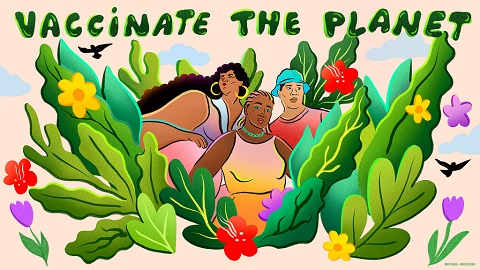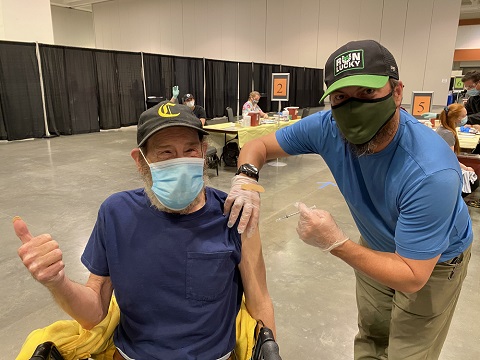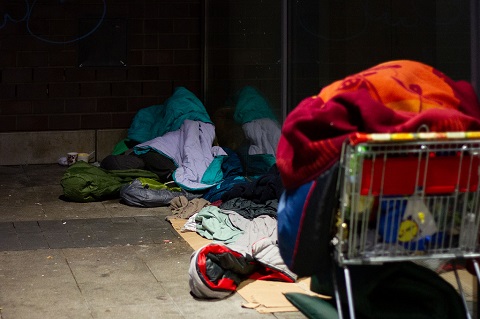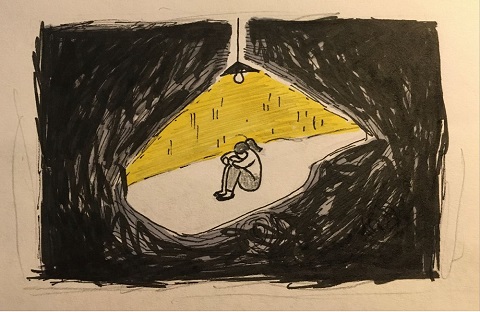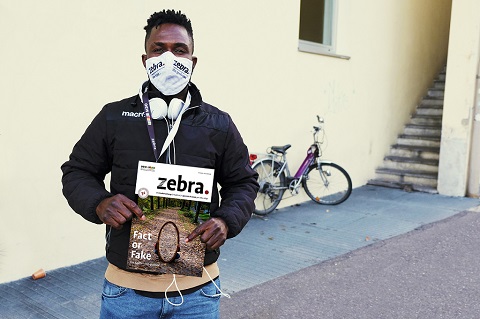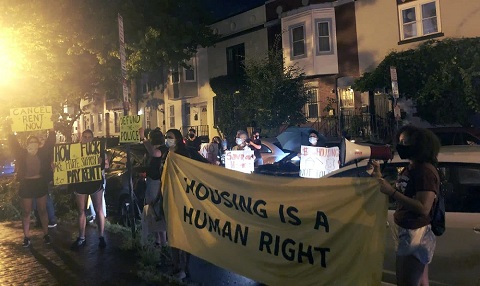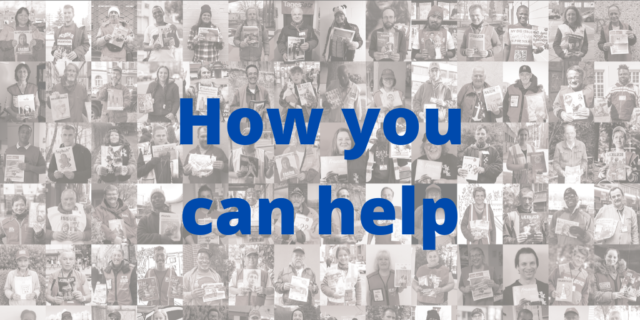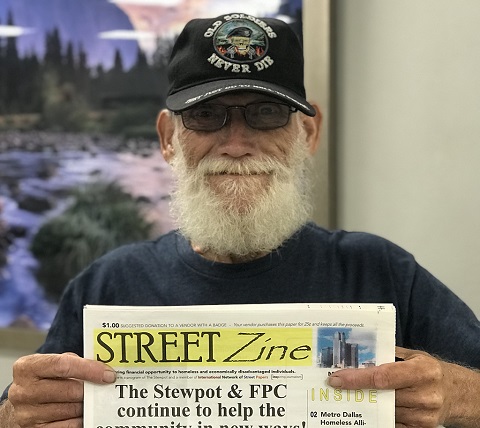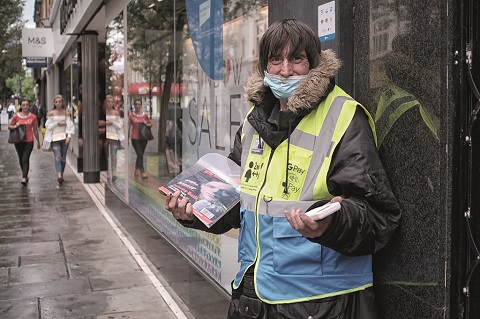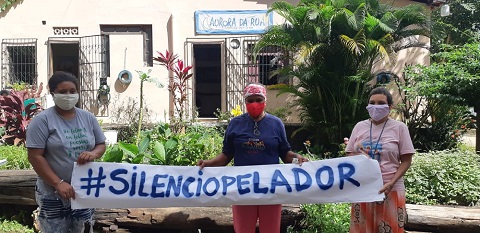By Poul Struve Nielsen, Hus Forbi
A street paper hero is something to be. Simon Nielsen is a Danish street paper hero. He is homeless and he sells Hus Forbi. Furthermore, he is chairman of the board of the Hus Forbi organisation that publishes the Danish street paper.
At the beginning of March, he had not imagined how much he was about to learn about crisis management in the coming weeks. He had not imagined that he would have to advise his colleagues to sell the paper only if it was strictly necessary for them. He had not imagined that he would have to launch a fundraiser to raise money for colleagues in need. And he had not imagined that he would spend a lot of time driving through Denmark to deliver vouchers for supermarkets so that homeless and socially excluded people would be able to do necessary shopping. All because of coronavirus.
The Danish Social Minister said publicly – with the director of the Danish Board of Health standing next to her – that, of course, it is not dangerous to buy a copy of Hus Forbi. You just have to take the same precautions that you take when you interact with any other human being. The vendors have been instructed how to interact as well, so we are happy for the message.
But there is really no urgency impressed by the Danish government to support those who are homeless. The homeless community does not really care though. They support themselves. Hus Forbi is run by the vendors, by the homeless; and the decision to take some measures was taken by the board on the very day schools and cultural events were closed. While the government distributed a little sum of money to a small variety of organisations three weeks later, Hus Forbi responded immediately.
It is an advantage to have people who are themselves the target group for initiatives as decision makers because they will take the initiatives they need – and not political decisions or decisions based on what some people who do not know may feel or think.
“While the government distributed a little sum of money to a small variety of organisations three weeks later, Hus Forbi responded immediately.”
Immediately Hus Forbi started a fundraiser. It was successful, so only a few days later the three next steps in the plan could be carried out with help from Hus Forbi’s partners around the country: Hus Forbi handed out vouchers for supermarkets to those in need; money was given to cafés and shelters for homeless and socially excluded people so that they could provide take away; Hus Forbi started to pay for homeless vendors to stay in some Danhostels [the umbrella-organisation of Danish youth hostels – they have standards and are much better than the cheapest hotels]. On top of that, hand sanitiser, which is sold out in most pharmacies, was distributed to partners so that they could give it away.
After the fundraiser and a campaign in three national daily newspapers, it was possible to take further steps to support the vendors: the price for the April edition was cut in half for vendors, from DKK 10 to DKK 5 (the readers still have to pay DKK 20).
Hus Forbi is now supporting the health needs of its vendors – they simply go to a pharmacy, show their vendor card, and get medicine for free, Hus Forbi covering the cost. In Denmark, homeless and socially excluded people live 19 years shorter than an average citizen and many do not get the medications they are supposed to because they cannot afford it.
Some of the vendors do not want to go out in the streets. Others are still selling the paper. Sales have gone down to around one third (33 per cent) of what it should be and would be if not for the looming presence of COVID-19.
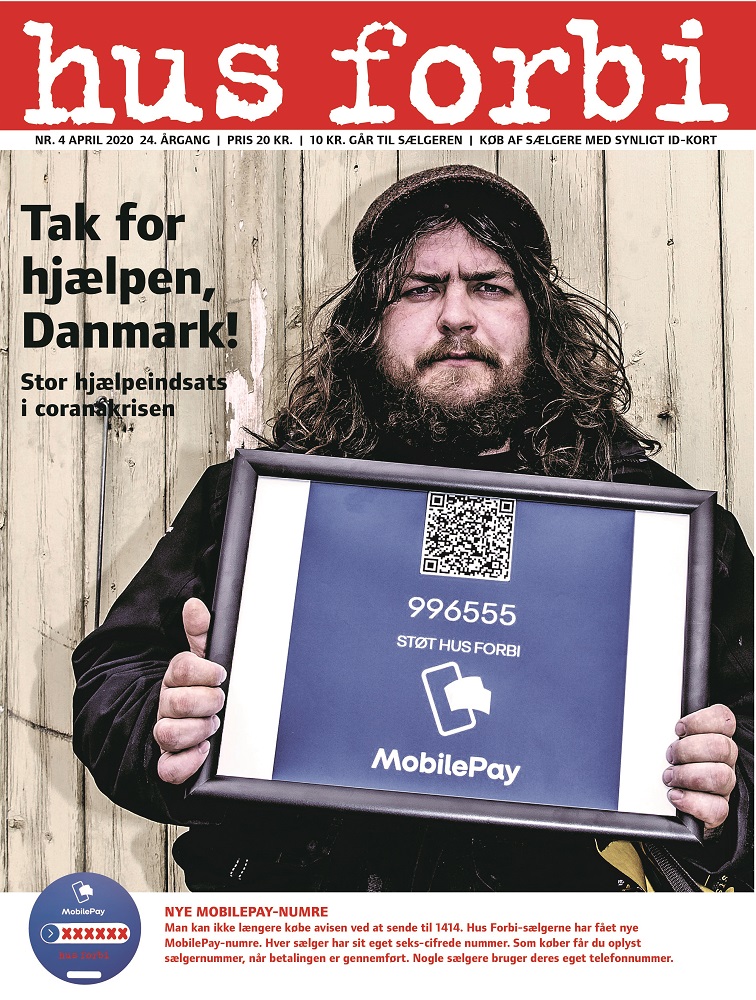
But we are publishers and we are continuing to publish without trying to channel the readers/buyers into subscriptions or digital papers. This has of course been discussed, but the conclusion is that it is important to remain faithful to our business model.
The government measures to stop the spread of the virus seem to have worked in Denmark. The health system is still functioning. 139 people have died. 517 are in hospital, and this figure is decreasing. If the society had been totally shot down, it may not have been possible to keep selling the paper.
Maybe Hus Forbi has been a little lucky with the timing too. We have started a digital project to be more visible on social media and examine possible ways to publish digitally. Because of this there was a fine-tuned digital marketing machine ready to support the fundraiser. Later, some of money raised has been spent on publishing, which has in fact manifested as an extra edition of Hus Forbi – a special pull out in three national daily newspapers on Easter Saturday. The ads in these PAPERS have already proved worth it in terms of increased funds being raised.
Most stories in that extra edition are about homeless people coping with coronavirus but the cover-story is an interview with one of the vendors who was a rough sleeper, was criminalised and prohibited from accessing the centre of Copenhagen. His case was taken to court and the judge ruled that the police had broken the law. His compensation was only symbolic, and he is very critical about the way he is distanced and stigmatised by the public.
Further negative government measures against the homeless population seem to have been put on hold in this situation. But then again, it does not look good if the government is doing little for a vulnerable, at-risk group, and at the same time just plays tough on them. And the government is already asking a lot.
Mette Frederiksen: “Vi be’r de svageste om at være de stærkeste”
Og vi lover at være stærke! ❤️💪🏻 #dkpol
— Hus Forbi (@Hus_Forbi) March 30, 2020
The Prime Minster said in a speech: “We have to ask those who are weak to be strong in this situation.”
Hus Forbi replied on Twitter: “We promise to be strong” – and got a like from the PM. This strength is built on solidarity, unity, good leadership, wise decisions and determination. In April, Hus Forbi put its own chairperson, vendor Simon Nielsen, on the cover with the donation number so that anyone can use their phone to donate easily and immediately. A street paper hero is something to be.
Find out how you can help vendors of your local street paper during the coronavirus pandemic here.





